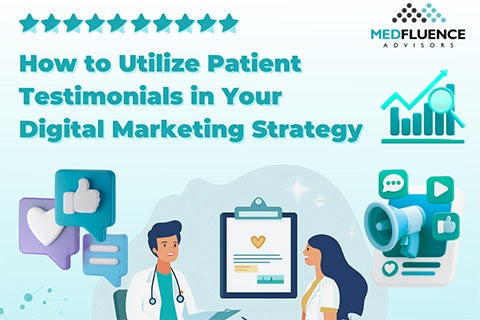White Paper: Future Trends in Private Practice Marketing
The Future of Healthcare Marketing: Trends Private Practices Need to Watch in 2025
The healthcare industry is evolving rapidly, driven by global pandemics, economic uncertainties, rising patient expectations, regulatory changes, and technological advancements. For private practices, staying relevant and competitive in this dynamic landscape requires more than exceptional patient care—it demands strategic marketing. With a saturated marketplace and an increasingly digital-savvy audience, healthcare practices must embrace innovative marketing approaches to attract new patients and retain existing ones.
This white paper explores why healthcare marketing is indispensable for private practices and highlights emerging trends shaping the future of healthcare marketing.
Why Private Practices Must Invest in Healthcare Marketing
Healthcare practices operate like businesses and need consistent patient flow to thrive. A robust marketing strategy does more than fill appointment slots; it builds a lasting reputation, strengthens patient relationships, and drives sustainable growth.
Here’s why private practices should double down on marketing efforts:
- Building Brand Awareness
A strategic marketing plan lets you shape the narrative about your practice, creating a distinctive voice and brand. With personalized messaging, practices can stand out in a crowded industry, fostering recognition both online and within their local communities. - Enhancing Patient Acquisition and Retention
Effective marketing ensures consistent communication with both prospective and existing patients, cultivating trust and loyalty. This helps practices not only attract new patients but also retain them, driving long-term revenue growth. - Establishing Trust and Credibility
Marketing is more than advertising services; it positions your practice as a trusted healthcare authority. By sharing reliable, educational content and engaging transparently, you can reinforce patient confidence and strengthen your reputation.

Emerging Healthcare Marketing Trends for 2025
The future of healthcare marketing is digital, patient-centered, and data-driven. Below are the key trends that private practices should monitor and adopt to remain competitive in 2025:
- Prioritizing the Digital Patient Experience
As the digital front door to your practice, your website is often the first interaction patients have with your services. A well-designed website that is mobile-friendly, easy to navigate, and informative is non-negotiable. Essential features include:
- Self-scheduling options.
- Clear information about services, providers, and insurance.
- Integration with social media platforms.
Incorporating electronic health records (EHRs) further enhances the digital experience by reducing paperwork and streamlining care coordination, ultimately improving patient outcomes.
- Online Booking and Convenience
Patients value convenience, and practices that offer online scheduling will have a competitive edge. By adopting user-friendly systems for appointment booking, cancellations, and rescheduling, practices can cater to patient preferences and improve satisfaction.
- Building a Strong Social Media Presence
With most patients active online, a strong social media presence is vital. Regularly posting educational content, patient testimonials, and updates about your practice fosters engagement. Additionally, claiming and optimizing business profiles on directories like Google My Business ensures accurate information is readily available to prospective patients.
- Expanding Patient Access with Mobile Apps and Portals
Mobile apps and patient portals enhance accessibility, enabling patients to manage appointments, view test results, and communicate with providers. These tools also offer opportunities for telehealth services, which continue to grow in popularity post-pandemic.
- Leveraging Location-Based SEO
Localized search engine optimization ensures your practice appears prominently in search results when potential patients look for healthcare services nearby. Accurate and consistent business information across all online platforms is critical to maximizing local visibility.
- Shifting Towards Video and Podcast Content
Video content and podcasts are becoming go-to mediums for engaging audiences. Practices can use these formats to share health tips, physician introductions, or patient success stories. Given that 81% of people purchase products or services after watching a video, this format offers immense conversion potential.
- Emphasizing Personalized Medicine and Patient-Centered Care
Patients expect healthcare tailored to their unique needs. Practices must adopt patient-centered approaches, using data and advanced tools to create personalized treatment plans and deliver superior care experiences.
- Harnessing Online Reviews and Social Proof
Positive reviews are powerful trust signals. Proactively collecting and responding to patient feedback demonstrates your commitment to quality care and boosts your online reputation.

Technological Innovations Shaping Healthcare Marketing
As technology transforms the healthcare industry, marketing strategies must evolve accordingly. The following advancements will redefine patient engagement and streamline marketing efforts in 2025:
AI-Powered Tools
Artificial intelligence is revolutionizing healthcare marketing by automating repetitive tasks, enhancing patient communication, and improving efficiency. Key applications include:
- Chatbots: Provide real-time assistance, schedule appointments, and answer FAQs.
- Workflow Automation: Streamline administrative processes, freeing staff to focus on patient care.
Voice Search Optimization
Voice search is gaining traction among patients seeking healthcare providers. Practices should optimize their content for natural language queries to capture this growing audience segment.
Telehealth Integration
Telehealth remains a staple, offering convenience and expanding access to care. Practices must ensure seamless integration of telehealth services with their marketing and operational strategies to meet patient expectations.
CRM Systems for Patient Engagement
Customer Relationship Management (CRM) systems enable personalized communication through targeted reminders, newsletters, and follow-ups. By fostering ongoing engagement, practices can improve retention and patient satisfaction.
Balancing Innovation with Compliance
While embracing new marketing tactics, private practices must prioritize patient privacy and data security. Adhering to HIPAA regulations ensures trust remains intact. Avoid sharing identifiable patient information in promotional materials or digital campaigns.
Why Keeping Up Matters
The healthcare marketing landscape is dynamic, with trends constantly evolving. Practices that stay informed and adaptable can navigate these shifts to drive growth, build trust, and foster long-term relationships with patients. Conversely, those resistant to change risk losing relevance and competitiveness.
Conclusion: Partnering for Success
At Medfluence Advisors, we specialize in helping private practices navigate the complexities of healthcare marketing. From digital strategies to patient engagement tools, our tailored solutions empower you to connect with your community and thrive in a competitive market.
If you’re ready to elevate your practice’s marketing efforts, let’s work together to shape a healthier, more connected future.



